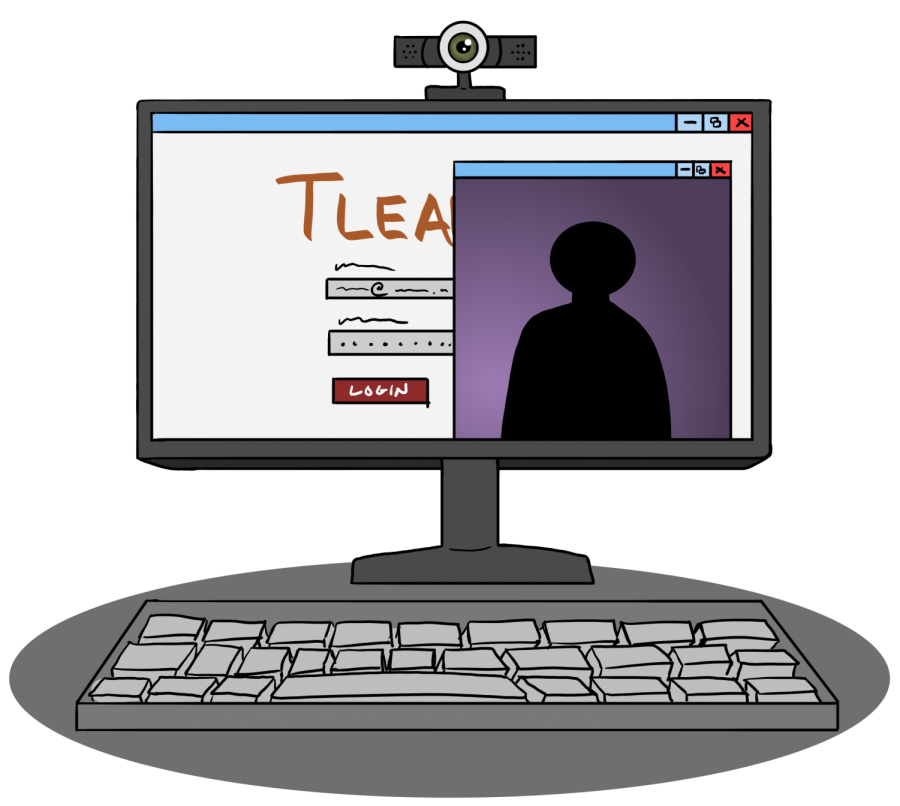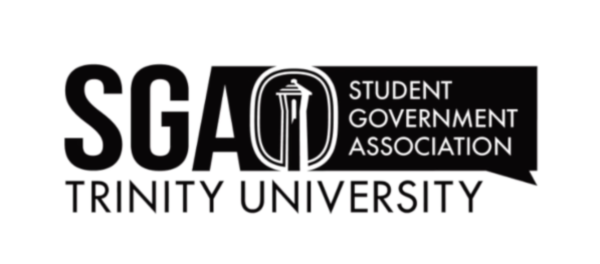Test-monitoring license to not be renewed
Associate VP for Academic Affairs cites being dissatisfied with ‘Orwellian dimensions’ of technology
In the third semester of the COVID-19 pandemic, professors are still working to find a fair and equitable way to proctor exams and cut down on cheating in an online environment. Whether they are using university-sponsored online programs, relying on the honor code, or something else, testing in a pandemic has created a learning curve for both students and staff.
Trinity University purchased a program called Respondus to prevent cheating during exams. Lauren Malone, academic technologist, is in charge of training and preparing professors to use this technology.
“We have Respondus LockDown Browser, which is a browser like Google Chrome or Safari or Firefox but this one allows you to take a test in a secure environment. So, when you click on the test and launch this browser, the only thing you can go to is the test and any external resources or websites that the instructor has cleared for the students to use during the test,” she explained. “There’s also a plugin called Respondus Monitor and that’s the video proctoring software, which records the student as they take the test.”
Faculty have also been using their own programs. TLearn, too, can track the student’s time spent on it; however, Malone explains that it is not as extreme as Monitor or other programs.
“If you’re in my class, for example, it’s going to tell me when you clicked on the exam and when you finished the exam. It’s not going to tell me that you opened a new tab in Google Chrome and were on Facebook while you were taking the quiz or anything. But it is going to tell me pretty detailed stuff about when people access and submit things for TLearn specifically.”
Trinity has striven to prepare instructors to use these technologies as effectively as possible. Malone sees the Respondus technology as something that should only be used if completely necessary.
“If an instructor comes asking me about Respondus and wanting to use it in their class, I listen to the type of test they’re giving, what sort of assessment they’re looking at, the size of the class and go case by case. So, if we’re getting right down to it, I usually advise them to lean on Trinity’s honor code because the more technology you add to something the more chances there are for it to mess up in weird ways that you didn’t expect,” said Malone.
Additionally, before professors are allowed to use Respondus, they must go through training.
“I talked to people about putting information about these programs in the syllabus for students who are concerned about data security. We go through the set-up of what it looks like on TLearn, what it looks like when a student actually goes to take an exam, and explain that it is an actual thing students have to download. Also, I make sure they know the pitfalls that the technology might have, such as lag in getting started with Monitor, false positives that might come up, and making sure that they know to actually go through the videos and review it if it flags a student for cheating,” said Malone.
However, there are still concerns about the ethics of using such technology.
“It all depends on the willingness of students and instructors to view these tools in the proper light, that is they’re fallible, they can misidentify supposed incidences of academic dishonesty. They can miss actual instances of academic dishonesty. So, as with all of the steps that we take to make sure that students engage in honest behavior. It’s just a tool. Mindfulness about the shortcomings is always an important part of the process,” said Michael Soto, Associate Vice President for Academic Affairs.
At the beginning of the pandemic, there was a rise in honor code violations caught by Respondus and TLearn.
“The pattern seems to be following historical precedent, but for example, at the end of spring 2020, we saw a dramatic uptake in the number of honor code cases. That probably has something to do with the rapid and unexpected movement to online learning,” said Soto.
However, Victory Ogubuike, internal chair of the Academic Honor Council, echoed Soto’s statement.
“Usually during the school year, we have more cases in plagiarism. During the pandemic, we have seen an increase in cases that have to do with unauthorized assistance, using materials not allowed on exams, quizzes or tests, and an increase in outside collaboration,” said Ogubuike.
The hope for the fall semester is that the use of such technologies will no longer be necessary.
“Because we’re not completely satisfied with our ability to completely mitigate against the Orwellian dimensions of Respondus, we decided not to renew that license for the next academic year,” said Soto.
We formerly wrote that Michael Soto was the VP for Academic Affairs. We have since corrected his title to Associate VP for Academic Affairs.

My name is Emma and I am a sophomore from Lockhart, Texas. I have worked at the Trinitonian since Spring 2021. I am an English major and hope to become...

I'm a senior Computer Science major and a Classical Studies minor from Newton, North Carolina with a passion for art. I also work at the Center for Experiential...











Amy Klein • May 3, 2021 at 11:29 am
Many of these “monitoring” programs end up causing problems for students with learning disabilities and approved testing accomodations (such as extended time). I sincerely hope Trinity advises professors before finals that this is a problem and instructs them clearly on how to extend time windows properly for students with approved accomodations through SAS.